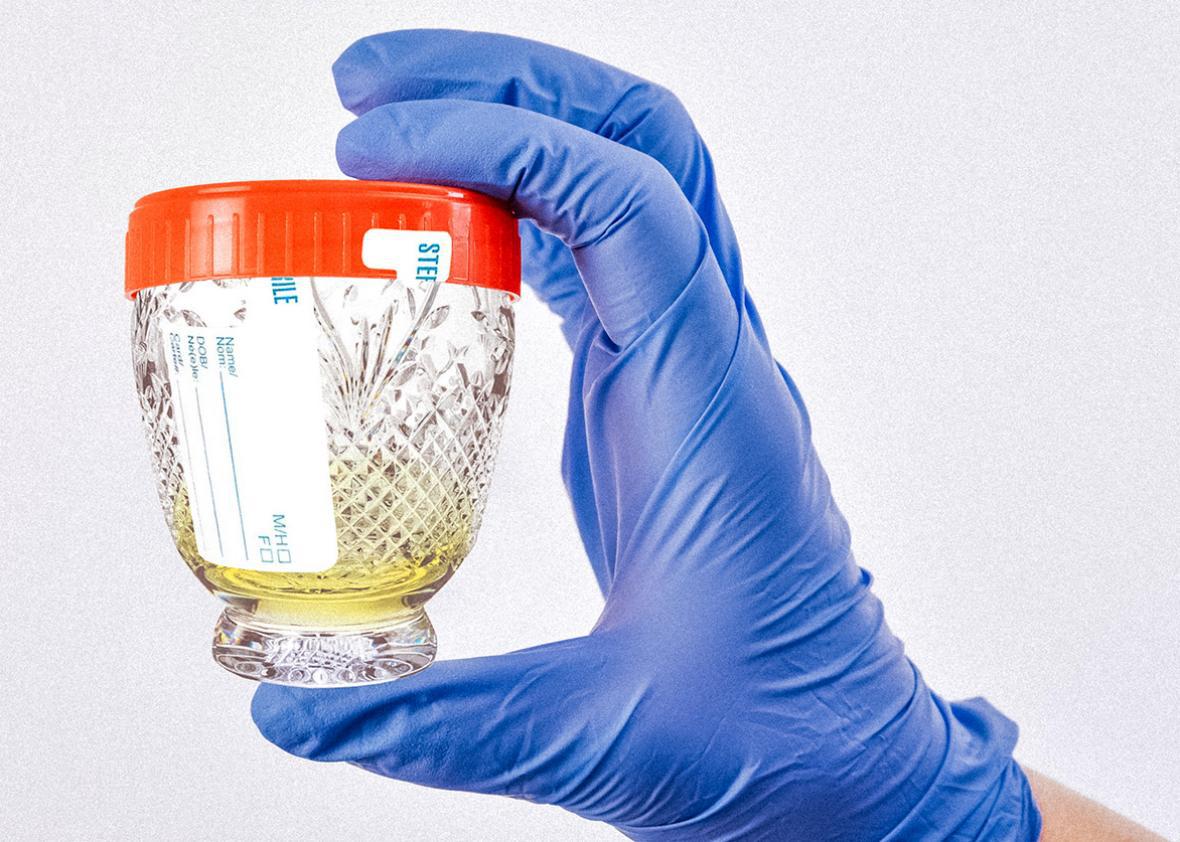Republicans may have faltered—again—this week in their effort to repeal the Affordable Care Act, but they soldier on elsewhere in their quest to strip Americans of government support. Last week, President Trump signed a bill revoking an Obama-era rule limiting drug testing for Americans who receive unemployment benefits. Wisconsin Gov. Scott Walker, meanwhile, is reportedly planning to ask the Trump administration for permission to drug-test residents of his state who need help paying for their medical coverage. Other Republican-led states are drug testing those who receive welfare. Critics have argued that such laws demonize the poor, violate constitutional rights, and are a waste of government money.
But I think Republicans should get their wish—if, and only if, they’re willing to drug-test every American who receives government support.
“No big deal,” I hear you say. “I’m not on welfare or a farmer, and I don’t receive any government subsidies.” However, subsidies come in many forms. In fact, Congress has buried about $1 trillion of subsidies in the tax code, disguised as tax breaks. Do you take the home mortgage deduction, receive tax-free employer-provided health insurance, or claim the child tax credit? If so, you’re receiving government support, and under the logic the Republicans have advanced you, too, should be subjected to drug testing.
The argument for drug testing welfare recipients is that the government provides money for a specific purpose: to ensure that the poor have sufficient funds to buy necessities such as food and shelter. It would be an affront to taxpayers if the recipients were to use these funds for other purposes, especially illegal drugs. Seems reasonable—except that plenty of other government expenditures, including targeted tax breaks, are intended for a specific purpose. If we’re going to police unemployment benefits, welfare, and Medicaid in this way, shouldn’t we do the same for these other programs? Good government demands it!
Take the home mortgage deduction. The government provides approximately $70 billion each year to those with home mortgages in the form of tax deductions. These benefits go to about 30 million families, including about two-thirds of all returns showing more than $100,000 in income. Let’s set aside for a moment the question of whether this subsidy makes sense. It doesn’t. How do we know that people are actually spending the money they save on housing? We don’t. Money is fungible, and folks could be spending their tax savings, made possible by other taxpayers, on drugs. Surely Republicans don’t want homeowners using their housing subsidies to buy a few eight balls of cocaine, right?
Or consider employer-provided health insurance, for which the government foregoes approximately $300 billion in taxes each year, benefiting approximately 70 million taxpayers. The purpose is to make health insurance more affordable and encourage people to buy it. What if they spend the money they save in taxes on a dime-bag of OG Kush? Let’s drug test them, too.
Some might argue that relief for the poor is different. The reason we provide them benefits is to ensure they don’t starve. In such cases, strict limits on how they spend their money may seem more appropriate. Homeowners and those who receive employer-provided insurance typically have extra funds, and what they do with them is their own business. (Of course, if true, one must wonder why they are receiving government help at all.)
But then this logic should apply to those who receive the child tax credit: approximately $60 billion per year, taken by about 38 million families. Presumably, we believe that those with kids should have more money to spend on food, clothing, and schooling for their kids. Certainly, they should not take the tax subsidies we provide and spend them on drugs. At the very least, we should drug test everyone who takes the child tax credit to ensure that the money is not misspent. Anything less would sell out the children.
Or maybe there is a difference between “handouts” and subsidies designed to induce specific behavior. OK, I’ll bite, but that means that all of Wall Street—and shareholders too—should have been subjected to drug testing after receiving bailouts in 2008 and 2009. Perhaps my memory is faulty, but while some politicians opposed the bailouts on principle, I don’t recall any calling for drug testing.
Of course, the difference between unemployment benefits, welfare, and Medicaid and other government handouts is that the former programs chiefly benefit the poor, a group without access to high-paid lobbyists or political connections, while other policies benefit the middle class and up. While it might make sense from a political perspective to stick it to those with little political power, I think the Republicans are better than that. After all, we’ve heard for years about how principle drives all their decisions. I’ll believe it in earnest when they treat all recipients of government largesse, including the giddy first-time homebuyer and corporate CEO, the same way they treat the poor.
